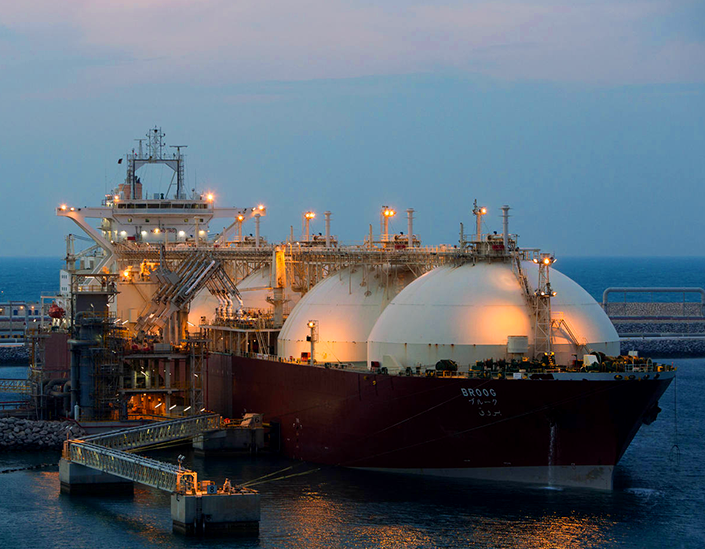Germany will pay LNG terminals (much) more

The floating LNG terminals will cost Germany 6.5 billion euros, more than double what was forecast. All the details
Germany's economy ministry, led by Robert Habeck, said on Sunday that spending on the purchase and maintenance of floating liquefied gas (LNG) terminals will be more than twice as high as expected.
WHAT THE TERMINALS ARE FOR
Like other European Union countries, including Italy , Germany is betting heavily on LNG to reduce its strong energy dependence on Russia. The regasification terminals – those floating at sea can be ships, known in jargon as FSRU – are necessary for the importation of liquefied fuel transported by LNG tankers, because they allow it to be returned to its gaseous state and introduced into the network for consumption.
Berlin would like to eliminate gas purchases from Moscow, which accounted for almost a third of its imports in 2021, by the summer of 2024. Last May, the German authorities kicked off a rapid authorization process for the FSRUs and for the fixed land terminals ( onshore ).
GERMANY'S EXPENDITURE ON LNG FACILITIES
In the German budget for 2022, spending on regasification terminals was estimated at 2.94 billion euros. However, on Sunday, the Economy Ministry announced – but the weekly Der Spiegel had already anticipated it – that the cost will rise by around 3 billion euros, for a total of 6.56 billion.
WHAT THE MINISTRY OF THE ECONOMY SAID
"In the course of extensive consultations with the many parties involved, additional costs were determined," the ministry explained, speaking of operational costs and the need to build additional infrastructure on land. However, he added that the terminals are essential for Germany, Europe's largest economy, to replace supplies of Russian gas, which have become scarce after the invasion of Ukraine.
The German parliamentary budget committee has already approved the additional billions for the terminals.
– Read also: How and how much the high energy price will weigh on Germany's GDP
FIRST TERMINAL IN WILHELMSHAVEN COMPLETED
On November 15, Germany completed the construction of its first floating LNG terminal, located in the port of Wilhelmshaven, on the North Sea: the FSRU will be managed by the German energy company Uniper. Minister Habeck said the site will come on stream between late 2022 and early 2023. However, the ship, the Hoegh Esperanza, is still in a shipyard in Brest, France: it should arrive in Wilhelmshaven around mid of December and start receiving LNG loads from January.
OTHER PROJECTS
Around the same time, the start of activities in a second floating terminal, intended for the electricity company RWE but still on the North Sea, is expected: the selected location is the port of Brunsbuettel. The other projects in the cities of Stade and Lubmin are expected to be ready by the end of 2023.
A second FSRU managed by Excelerate Energy on behalf of a consortium composed of E.ON, Engie and Tree Energy Solutions will be positioned in Wilhelmshaven starting from the fourth quarter of next year. Lastly, towards the end of the year, Lubmin should receive a regasification vessel chartered and managed by a private entity.
Together, the six FSRUs are expected to cover a third of Germany's annual gas needs, based on the 90.5 billion cubic meters consumed in 2021.
LNG AND HYDROGEN
The expansion and adaptation works of the port of Wilhelmshaven are aimed not only at the import of LNG but also, in the near future, of hydrogen, a fuel that does not emit greenhouse gases.
In August, the German electricity companies Uniper and E.ON signed memoranda for the purchase of 1 million tons a year of green ammonia (ie produced from renewable sources) from the Canadian company EverWind. Supplies will start in 2025.
Ammonia is composed of nitrogen and hydrogen and performs the function of vector for the transport of hydrogen: it is easier to load on ships because it requires lower temperatures to be liquefied (-33.1 °C against -253 °C).
This is a machine translation from Italian language of a post published on Start Magazine at the URL https://www.startmag.it/energia/germania-gnl-spesa-terminali/ on Mon, 21 Nov 2022 09:52:17 +0000.
